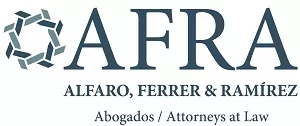Through the Special Prosecutor for Crimes against Intellectual Property and Computer Security, Panama has set a precedent regarding the country's position of websites selling counterfeit products and infringing trademarks. In the past months the Prosecutor has ordered the shut down of at least 3 websites conducting illegal activities.
Despite the lack of special legislation on the matter, these cases can be addressed by the Prosecutor due to the fact that many international websites hire hosting services from Panamanian companies. This clears the way for the use of Panamanian legislation such as the Judicial Code, specifically Article 2178, which states that public offices can search and seize an establishment where there is serious evidence of illegal activity.
The action is initiated by filing a complaint with the Special Prosecutor, who in turn evaluates the facts in order to determine if there is in fact "serious evidence" of illegal activity. The function of this office is to issue a preliminary report assessing the existence of a crime or violation, using the established trademark law and Criminal Code.
According to the Criminal Code, the act of counterfeiting is a crime punishable with 2-4 years of prison. As to the Panamanian trademark law, it indicates that trademark infringement is incurred when someone uses a trademark without the authorization of the owner, including cases of domain names or e-mail addresses.
Once the Prosecutor has gathered significant evidence to determine that there is a criminal offense occurring and a connection exists with a person or persons committing such offense, they order a visual inspection, a search and a precautionary measure to take place in the company who is serving as host.
The first thing that is done is the inspection and seizure of evidence in the whereabouts of the company that hosts the website. Subsequently, it is applied the injunction to shut-down site in question; the host must provide a cancellation report and preserve the content for two years.
"This article first appeared on WTR Daily, part of World Trademark Review, in June, 2014. For further information, please go to www.worldtrademarkreview.com."
The content of this article is intended to provide a general guide to the subject matter. Specialist advice should be sought about your specific circumstances.

